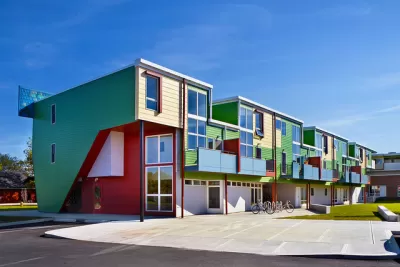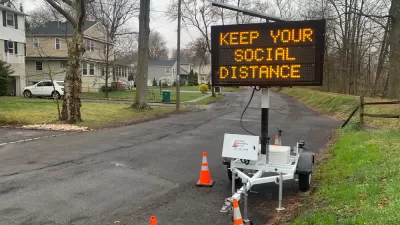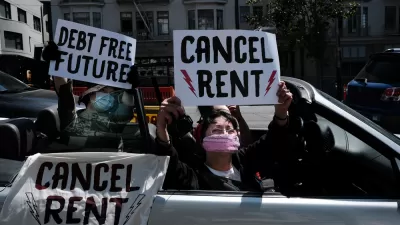These six housing investment strategies will incorporate lasting affordability, racial equity, and resilience into COVID-19 recovery plans.

During the past few months, local governments have—by necessity—focused on urgent COVID-19 housing responses including eviction moratoriums and emergency rental assistance. Attention must now turn to longer-term COVID recovery strategies. Housing with lasting affordability should be an indispensable feature of any local COVID recovery plan, especially for municipalities that strive for racial equity and resilience. A few municipalities, like Baltimore, are heading proactively in this direction by investing in lasting affordability. It’s time the rest of us do the same.
Lasting affordability is achieved through legal restrictions on land or property that guarantee affordable rents and home prices for low- and moderate-income households for at least 40 years. The term “lasting affordability” also carries an implicit intention for—and mechanisms to support—affordable rents and home prices in perpetuity. Lasting, perpetual, or permanent affordability can be implemented in both rental and ownership housing in any state, although legal guidelines and restrictions slightly vary. Models to achieve this include shared-equity homeownership, community land trusts (CLTs), inclusionary housing policies, limited-equity cooperatives, and deed-restricted housing programs.
Building homes with lasting affordability and converting existing buildings to perpetual affordability must happen incrementally. Housing is one of several urgent public investments facing cash-strapped government agencies. Furthermore, increasing national racial equity and resilience requires an intersectional, cross-sectoral, coordinated approach of which housing is only one piece. That said, too often long-term policy solutions are deprioritized and we focus on those that solve immediate problems, treat a symptom, or earn a vote. Grounded Solutions put forward the following recommendations for new housing investment strategies that will incorporate lasting affordability, racial equity, and resilience into COVID-19 recovery plans.
First ....
FULL STORY: Lasting Affordability Is the Path to Resilience

Maui's Vacation Rental Debate Turns Ugly
Verbal attacks, misinformation campaigns and fistfights plague a high-stakes debate to convert thousands of vacation rentals into long-term housing.

Planetizen Federal Action Tracker
A weekly monitor of how Trump’s orders and actions are impacting planners and planning in America.

San Francisco Suspends Traffic Calming Amidst Record Deaths
Citing “a challenging fiscal landscape,” the city will cease the program on the heels of 42 traffic deaths, including 24 pedestrians.

Adaptive Reuse Will Create Housing in a Suburban Texas Strip Mall
A developer is reimagining a strip mall property as a mixed-use complex with housing and retail.

Study: Anti-Homelessness Laws Don’t Work
Research shows that punitive measures that criminalized unhoused people don’t help reduce homelessness.

In U.S., Urban Gondolas Face Uphill Battle
Cities in Latin America and Europe have embraced aerial transitways — AKA gondolas — as sustainable, convenient urban transport, especially in tricky geographies. American cities have yet to catch up.
Urban Design for Planners 1: Software Tools
This six-course series explores essential urban design concepts using open source software and equips planners with the tools they need to participate fully in the urban design process.
Planning for Universal Design
Learn the tools for implementing Universal Design in planning regulations.
Heyer Gruel & Associates PA
JM Goldson LLC
Custer County Colorado
City of Camden Redevelopment Agency
City of Astoria
Transportation Research & Education Center (TREC) at Portland State University
Jefferson Parish Government
Camden Redevelopment Agency
City of Claremont





























